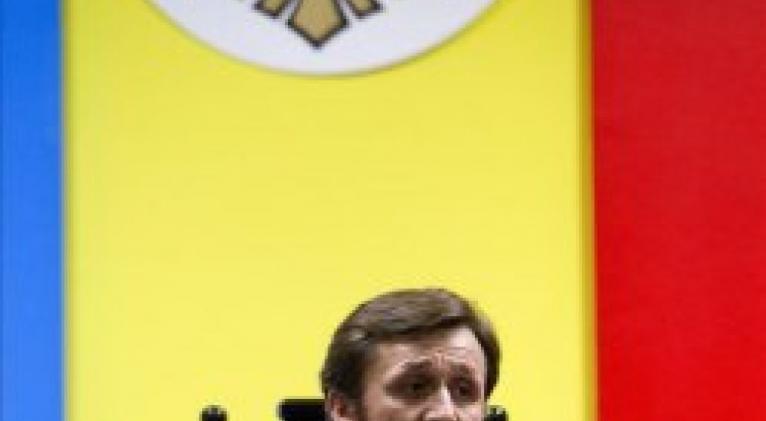Moldova Turns Its Back on EU, Votes for Two Pro-Russian Forces
especiales

Out of the 62 percent of votes counted so far, the Socialist Party has garnered 21.82 percent, making it the country’s foremost political force.
Although the pro-EU Democratic Liberal Party of Prime Minister Iurie Leanca is in second place with 18.63 of the votes, its allies in the current government have not managed to get the sufficient number to redraw the pact.
The three pro-European parties that have governed Moldova since 2009 managed to get a little more than 40 percent of the ballots even after presenting the election as a vote on the European course taken by the country under their rule.
The Democratic Party obtained 16.55 percent while the ultra-nationalists of the Liberal Party, which advocated the reunification of Moldova with neighboring Romania, became the fifth and last political force in the country with 7.58 percent of the ballots.
The big loser of the elections has been the Communist Party of former president Vladimir Voronin, which lost the top spot to collect only 19.18 percent of the votes.
After the announcement of the result of the partial vote count, the socialists led by former communist leader Igor Dodon, declared that the people had voted for a different development vector.
Throughout the campaign, Dodon’s party defended the termination of the Brussels Agreement and integration into the Customs Union led by Russia.
The Socialist Party, that has been much more aggressive in its anti-European stance, seemed to have gained the votes of the supporters of the pro-Moscow Patria party which was expelled from the elections three days before the contest for receiving illegal funding from abroad.
While taking an equally aggressive position against the Europeanist coalition, the communists have, nonetheless, been more reserved about the future of the association agreement with Europe, expressing their willingness to negotiate its revision so as not to endanger the country’s relationship with Moscow.
After several decades as the party with the most seats in parliament, the Communist Party will now need to consider a pact with Dodon, who Voronin has called a traitor, if they want to topple the Europeanist forces that took power in the previous legislative elections.
Although presented as decisive to the future of the country, especially by pro-European forces, only 55.86 percent of registered Moldovans showed up to vote in the elections, the lowest participation in at least 15 years.
The more than 200,000 inhabitants of the Moldovan separatist region of Transnistria who are part of the electoral census did not participate in the elections.
The region, a strip of land nestled between Ukraine and Moldova inhabited by little more than half a million people, of which between 150,000 and 200,000 are Russian, broke ties with Moldova after a civil war between 1992 and 1993 which cost the lives of hundreds of people.
The new congressional majority that emerges from the elections must choose the head of state who must be voted for by at least three-fifths of the chamber, or 61 legislators under the peculiar Moldovan electoral system.
The members of parliament can only vote twice to elect the president. In case of a failure to do so new elections have to be held.













Add new comment